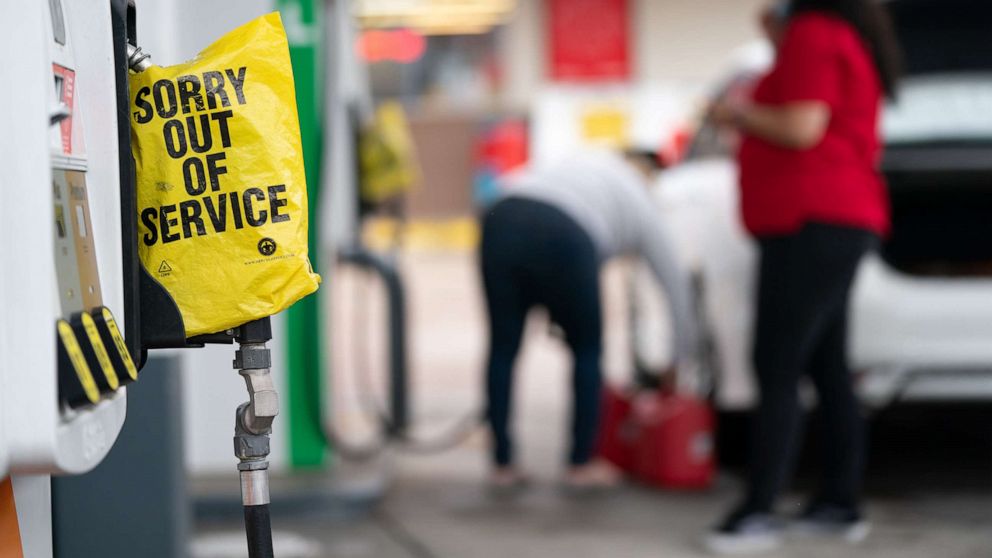'Don't panic,' Biden tells Americans facing gasoline shortages from pipeline attack
Hoping to ease concerns of millions of Americans experiencing gasoline shortages and rising prices following the ransomware attack on Colonial Pipeline, President Joe Biden gave an update on the situation Thursday, looking to deal with a potentially damaging political problem and on the heels of his new executive order aimed to prevent future attacks.
He pleaded with Americans to be patient as the pipeline company returns to full operations.
"I want to be clear -- we will not feel the effects at the pump immediately," Biden said in remarks from the White House and carried on national television. "This is not like flicking on a light switch. This pipeline is 5,500 miles long."
Biden said that he expects to see a "region-by-region return to normalcy" starting this weekend and into next week, but told Americans not to be alarmed or hoard gasoline.
"Don't panic,” he said. "I know seeing lines at the pumps or gas stations with no gas can be extremely stressful. But this is a temporary situation. Do not get more gas than you need in the next few days … Panic buying will only slow the process."
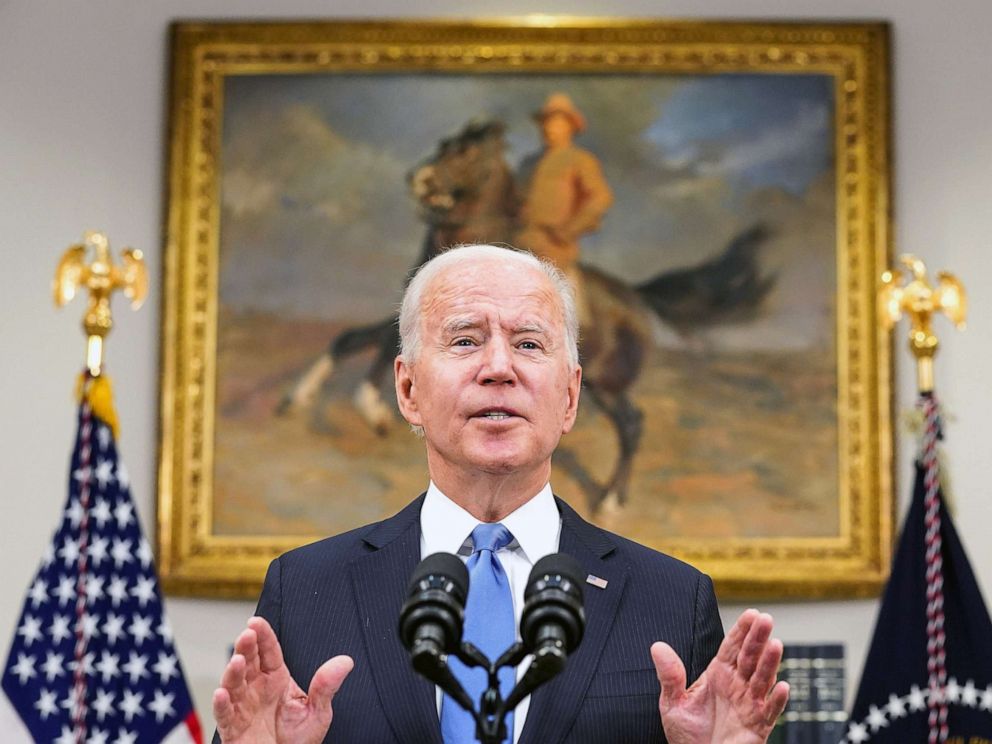
Looking directly into the camera and leaning into the microphone, Biden warned gas stations against price-gouging, saying, "do not try to take advantage of consumers during this time."
"I'm going to work with governors in the affected states to put a stop to price gouging wherever it arises. And I'm asking our federal agencies to stand ready to provide assistance to state level efforts to monitor and address any price gouging at the pump. Nobody should be using this situation for financial gain."
Colonial Pipeline restarted its system late Wednesday afternoon and in a statement Thursday morning said it's "made substantial progress" and that "product delivery has commenced in a majority" of markets they service in the southeast.
In South Carolina, North Carolina, Virginia and Washington, D.C., gas stations with fuel outages are over 50%, according to GasBuddy.
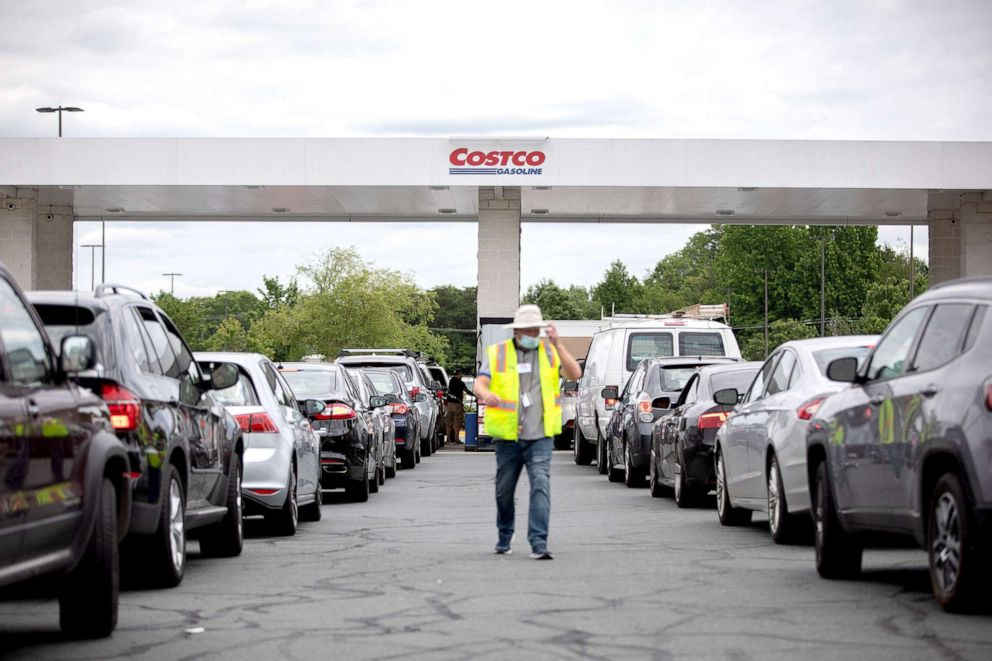
The president has been briefed on the incident every day since the attack happened Friday night by his counselor Steve Ricchetti and National Security Council chief of staff Yohannes Abraham, a source familiar with the matter told ABC News and first reported by Axios. Biden was also briefed by White House National Security Adviser Jake Sullivan twice on Sunday and again on Monday and Tuesday.
In sign of the political sensitivities involved, the sources made a point of noting it was clear from Biden's first briefing that he wanted to be regularly updated on the latest developments and, in particular, what was being done to respond.
The president Thursday reiterated that there was no evidence that the Russian government was behind the attack, but that those involved "are living in Russia."
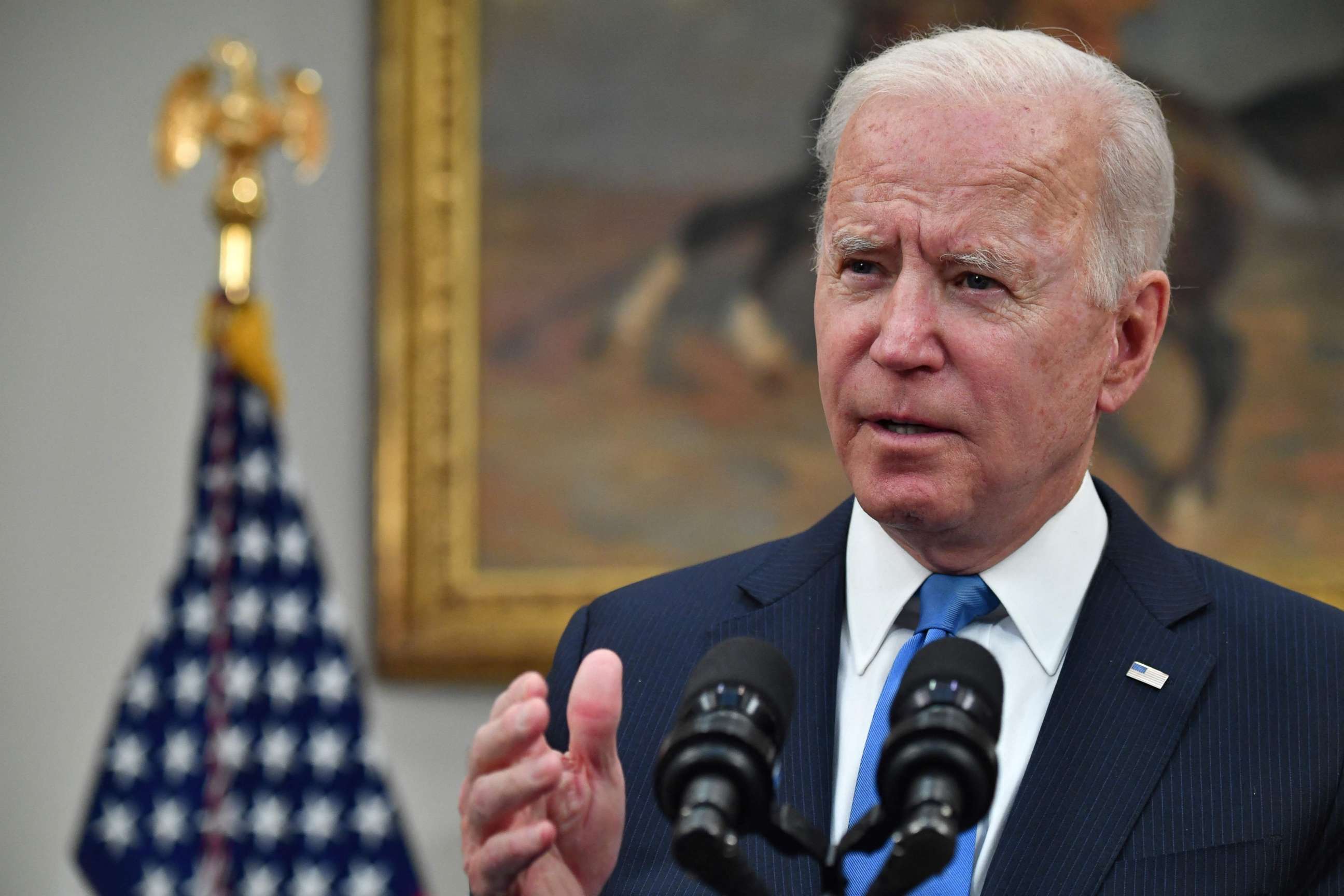
He told ABC News Senior White House Correspondent Mary Bruce that he believes the FBI's assessment that Russian President Vladimir Putin was not involved and that the United States would not be carrying out any kind of retaliatory cyberattacks to shut down the criminals involved.
"We have been in direct communications with Moscow about the imperative for responsible countries to take decisive action against these ransomware networks. We're also going to pursue a measure to disrupt their ability to operate."
There are few things more politically dangerous than high gas prices, and with the Memorial Day holiday around the corner, the president looked to tamper worries with his remarks and spoke directly to frustrated Americans, making the case that this issue will be short-lived.
His remarks came just hours after he signed an executive order to strengthen U.S. cybersecurity defenses with the goal of preventing similar attacks and after the White House has faced questions about why it wasn’t better prepared to protect its infrastructure.
Biden’s order mandates companies "doing business with the federal government" share information with it about hacks, but would have no implications for private companies that aren’t.The president acknowledged the restraints in his executive power, admitting “I cannot dictate that the private companies do certain things relative to cybersecurity.”
On Wednesday, a senior administration official said they “pushed the authority as far as we could,” in relation to the executive order and that “anybody doing business with the U.S. government will have to share incidents, so that we can use that information to protect Americans more broadly."
It will also require all software bought by the federal government to meet certain security standards within nine months and "creates a pilot program to create an 'Energy Star' type of label so the government – and the public at large – can quickly determine whether software was developed securely."
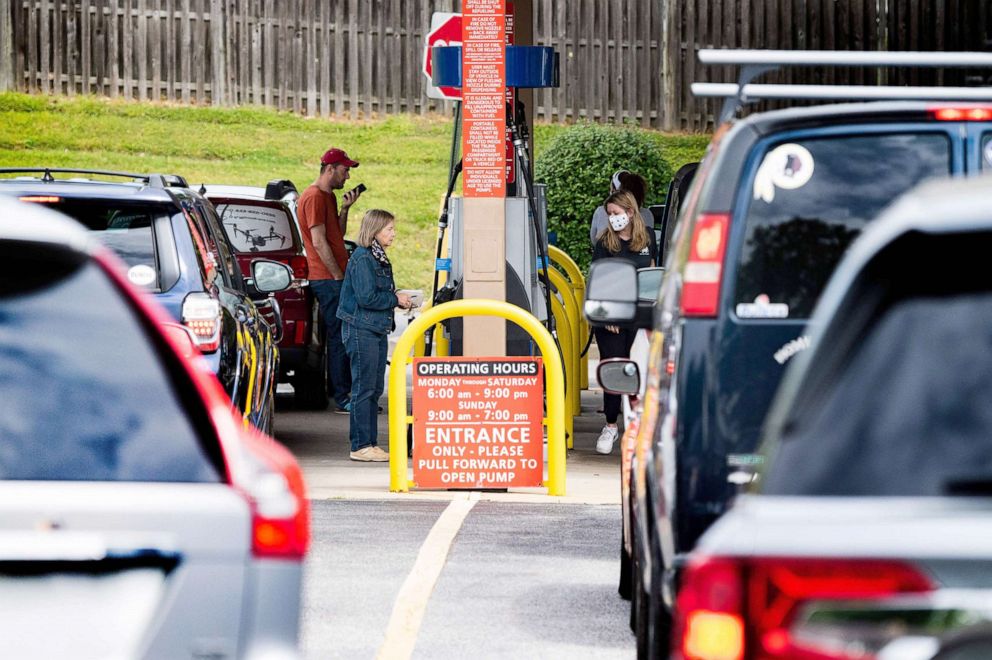
Another danger the Biden administration is now confronted with are concerns over inflation and rising prices on consumer goods, including gas prices which crossed $3 a gallon on Wednesday for first time in 7 years.
Prices consumers pay for goods like food and gas went up 0.8 percent in April according to the Bureau of Labor Statistics. Over the last 12 months, the “all items index” increased 4.2%., which is the largest 12-month increase since September 2008. Prices for used cars and trucks rose 10% in April as well, making it the largest 1-month increase since the series began in 1953, and were a significant contributor to the broader increase.
All three major stock indices fell Wednesday as data indicated inflation was higher than expected in the month of April and investors seem to be nervous that it may be higher and more persistent than the Federal Reserve and Treasury Secretary Janet Yellen have been forecasting.
White House press secretary Jen Psaki this week said that the administration takes "the possibility of inflation quite seriously" but that there are "a range of factors" in play.
"There’s a couple of data points that are specific to this moment. And we knew, just as the — as the economy, sort of, shrunk and shut down, that, as it’s turning back on, there would be some of these impacts."
ABC News’ Molly Nagle and Zunaira Zaki contributed to this report
